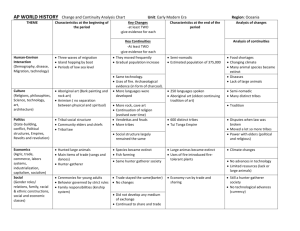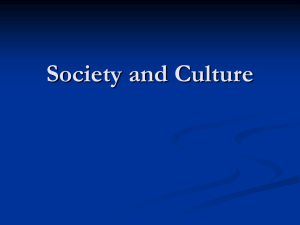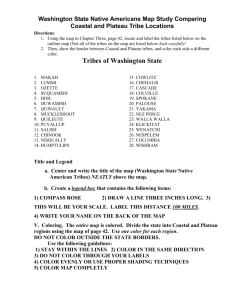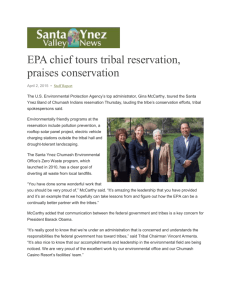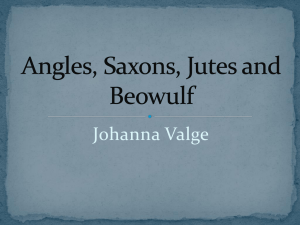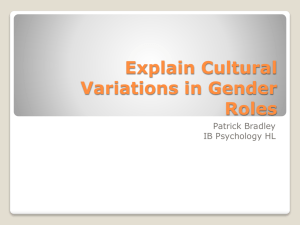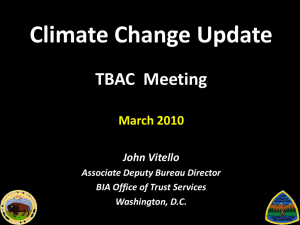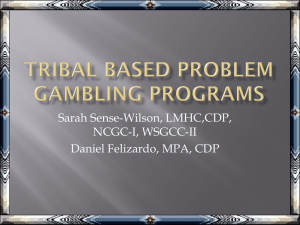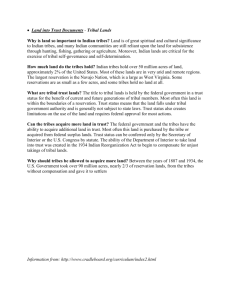1. comitia tributa
advertisement
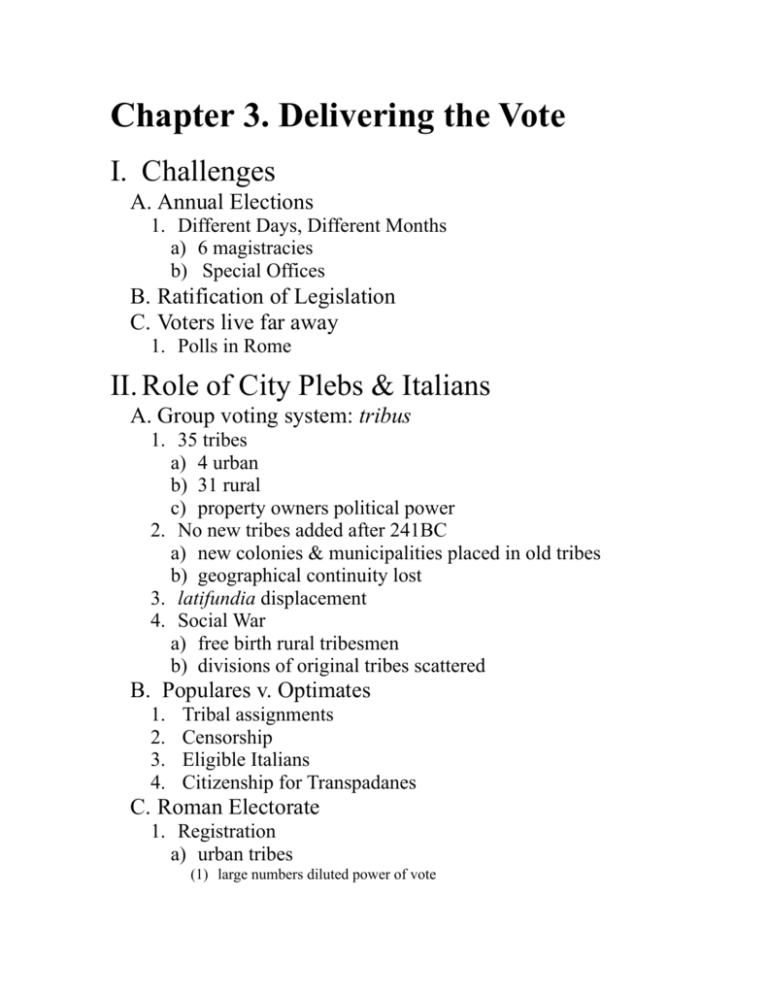
Chapter 3. Delivering the Vote I. Challenges A. Annual Elections 1. Different Days, Different Months a) 6 magistracies b) Special Offices B. Ratification of Legislation C. Voters live far away 1. Polls in Rome II. Role of City Plebs & Italians A. Group voting system: tribus 1. 35 tribes a) 4 urban b) 31 rural c) property owners political power 2. No new tribes added after 241BC a) new colonies & municipalities placed in old tribes b) geographical continuity lost 3. latifundia displacement 4. Social War a) free birth rural tribesmen b) divisions of original tribes scattered B. Populares v. Optimates 1. 2. 3. 4. Tribal assignments Censorship Eligible Italians Citizenship for Transpadanes C. Roman Electorate 1. Registration a) urban tribes (1) large numbers diluted power of vote b) rural tribes (1) impoverished rural tribesmen (2) propertied men (a) senators (b) equites (c) tribuni aerarii c) tribal transfers (1) prosecutorial rewards (2) enlistment bonus (3) censorial revisions/punishments (a) juror lists based on tribes (b) censors distribute d) freedmen (1) large component of urban tribes (2) Ethnic voter blocs don’t count (3) political moves to distribute them in rural tribes e) middle class (1) (2) (3) (4) lack of a middle class in city; mostly rural influence in consular, praetorian elections no absentee ballot during republic ‘motivated’ middle class voters D. Roman Assemblies 1. comitia tributa a. chose lower magistrates b. chief legislative body c. each tribe voted as a unit 2. comitia centuriata a. old military organization i. met in Campus Martius b. favored the propertied (A) undemocratic character c. elected consuls & praetors i. Imperium d. tribal vote taken separately in 5 classes arranged in 193 centuries according to property qualifications e. property qualifications i. Class 1: 𐆘 50,000 ($250,000) (A) 70 centuries (B) 2 from each tribe (C) voted first (D) results announced before next class voted e. praerogativa i. ii. preliminary ballot of one century of 1st Class superstition (A) f. Pompey’s thunder cuncta Italia i. ii. important for consular/praetorian elections populous areas near Rome connected by roads (A) (B) (C) iii. Vis Appia (Alban Hills to Campania) -12 tribes Umbria - 9 tribes Cisalpine Gaul- 14 tribes (1) Caesar and his winter breaks municipia important voting blocs E. Elections 1. In July after Ludi Apollinares 2. comitia centuriata a. consular/praetorian elections 3. comitia tributa a. curule aediles/quaestors/military tribunes elected 4. comitia plebis a. plebeian aediles/tribunes of the plebs elected F. Legislation 1. comitia centuriata a. consuls/praetors propose b. censorial laws 2. comitia tributa a. tribunes/consuls/praetors propose b. primary legislative body 3. periods a. no bill could be proposed 24 days before b. 24 day interval between proposal and vote i. diminishes number of Italians voting on legislation 4. influence a. of presiding officer (tribune) b. optimates i. ii. use senatorial decree to suspend no-legislation-interval before elections use centuriate assembly when stymied by tribal assembly to recall Cicero III. Campaign for Election and Legislation A. Office determined campaign 1. consul/praetor- votes of 1st class in centuriate assembly 2. lower office- votes of all classes in the tribes B. Tribal connections 1. tribules- fellow tribesmen courted by politicians 2. vicinitas- native son influence C. Machine politics 1. run by personal adherents of nobles, often freedmen 2. constant contact with local communities & tribal officers a) curatores b) tribuni aerarii c) divisores D. conficere tribus 1. friends & associates provide dinner & money to bring in vote of their tribe a) illegal for candidate to do this himself E. Campaigning for Election 1. 2. 3. 4. 5. no ticket not regular election speeches individual canvas commendation (endorsements) time frame a) 1 year out campaign for consul at July elections (1) mobilize outward support of friends & clients b) 24 days before election-formal announcement of candidacy c) candidatus = chalked toga 6. Election Abuses a) bribery (1) legal distribution by divisores of money from leaders to their tribules (2) illegal to hand over money to tribes not your own (malpractice) b) coitiones c) sectatores (1) voter intimidation (2) use of personal armies d) vote solicitation and fraud (1) custodes (2) diribitores (3) rogatores e) presiding magistrate (1) influence at the polls (2) postpone elections F. Campaigning for Legislation 1. tribunes a) most active legislative officer b) authority limited to city & mile radius beyond c) tribal assembly (1) sweeten deal for urban plebs (2) votes held with few rural voters in attendence 2. speechmaking a) audience: “leeches of the treasury/foreigners” b) rabble rousing c) optimates try to appear as the real populares 3. use of veto & religious obstructions a) mainly optimates tactic 4. consuls & praetors a) initiated very few laws 70-50BC (1) except Caesar the tribune-consul b) timed immediately before elections (1) with Senate decree suspending law forbidding this 5. irregularities a) voter intimidation (1) thugs (2) soldiers/veterans of private armed forces b) violence c) bribery less common d) postponements
